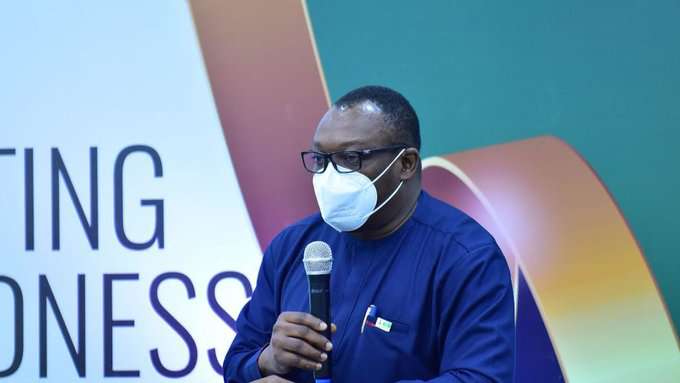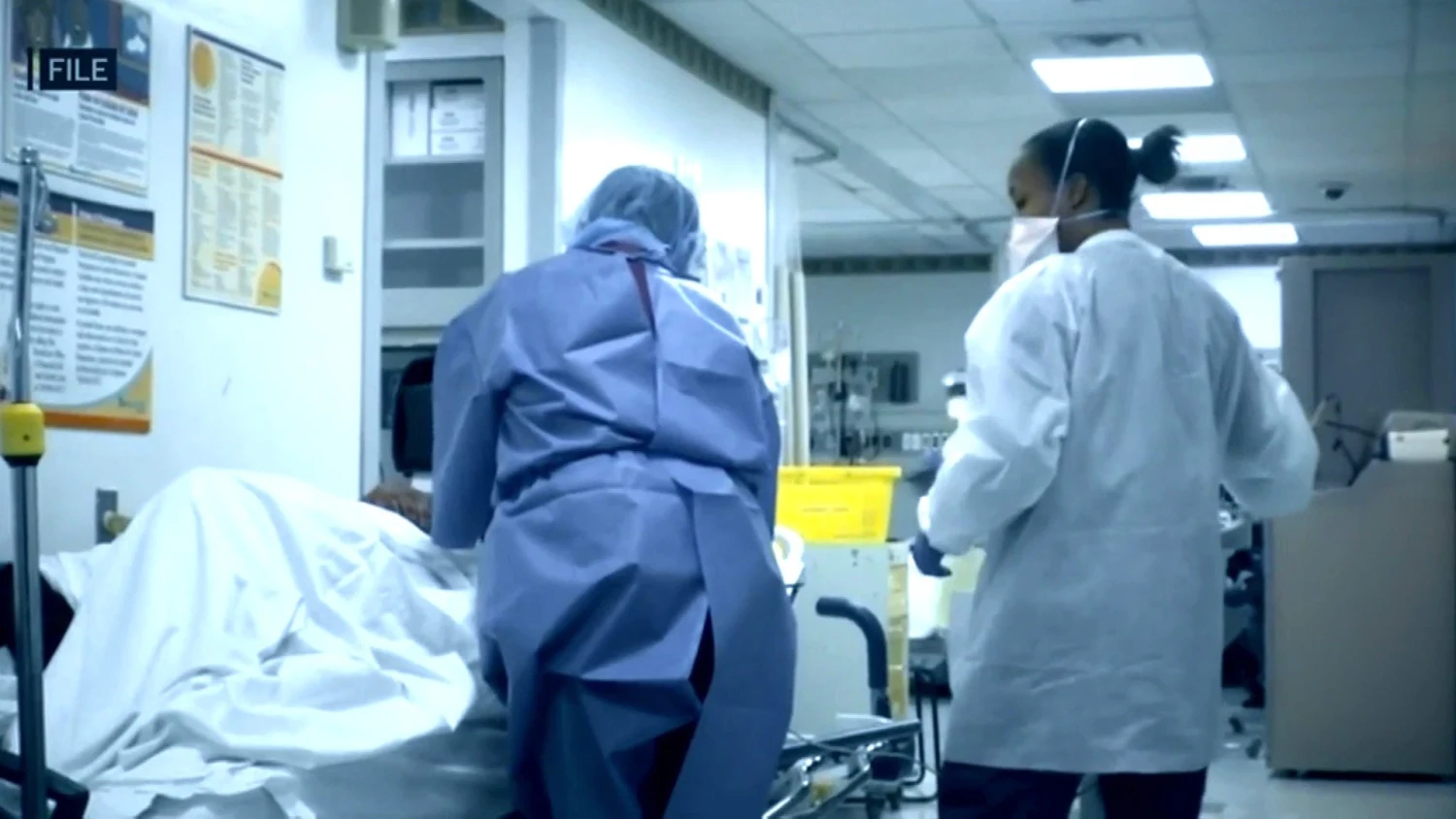Cover Story
Covid-19: Hardship worsens across the country

By OKEY ONYEWEAKU
With the continued expansion of the COVID-19 scourge even as the negative impact of the pandemic bites harder, widespread hardship is enveloping the national economy, with the people of Nigeria clearly bleeding under its weight.
This is more so as the health emergency has led to a national and global lockdown which has been accompanied by a decline in production levels, reduced consumer demand, oil price drop, reduced demand for crude oil and a colossal drawing down on savings and reserves.
Seemingly caught in the middle of the crossfire at the national economic level are conglomerates and industrial production companies in notably the household products and food and beverages sector that have been constrained to reduce their production levels on account of restrictions in access to workplaces in the past one month, challenges with imports and ports infrastructure and overall reduced products demand.
Industry watchers say that the saga of the companies is indeed a double blow, given that even before now they had been already caught in a vicious survival battle which had indeed even reportedly led some like 7-Up and A.J Leventis to take their exit from the Nigerian Stock Exchange, NSE.
UAC continues fighting
For the United African Company Nigeria, UACN, it has indeed been a vicious struggle to remain afloat in recent years and one that has seen some three C-suite management overhauls in about the past three years.
And underscoring the fact that it is not yet uhuru for the embattled behemoth despite the youthful energy that its current helmsman Fola Aiyesimoju is bringing to the task, Group profit/loss for the year ended December 2019 rose to a negative -N9.256billion, up from the equally negative -N9.530billion that had been recorded by the company in the corresponding period in 2018.
Though UAC continues to push on all fours to boost its business and trading positions, its 2019 revenues of N79.202billion is also only a notch higher than the N70.473billion it had recorded in 2018.
Part of the challenge clearly remains the difficulty in beating down the Cost of sales more aggressively as the 2019 figure of N62.575billion is not much better than the N57.230billion that had been expended in the corresponding period in 2018.
From the tally, Gross profit in 2019 was N16.626billion which is though marginally better than the N13,242,817 recorded in 2018, is still not as comforting as it ought to be.
This is more so, given the historic deep holes that the firm had been battling, and which has ensured that its concluding cumulative profit/loss for 2019 came to a negative -N9.256billion. For context, this is also only a notch higher than the equally negative -N9.530billion that had been posted in 2018.
Given its historic challenges, some shareholders who spoke to Business Hallmark in confidence expressed their worry over the lingering challenges besetting the firm. However, efforts to reach the spokespersons of the firm to clarify this situation remained unsuccessful as at press time.
Cadbury too
For the Food and Beverages giant, Cadbury, its showing for the period ended March 31st, 2020 demonstrates a revenue of N8.553 billion, which is a drop from the N9.283 billion that had been posted in the corresponding period in 2019.
Like with others in the industry, there is still a battle to lower Cost of sales and its N6.264billion expenses in the 2 months under review demonstrates this as it is a marginal improvement over the N6.908 billion that it had expended in the corresponding period in 2019.
Unilever also
It is also a spirited battle in Unilever PLC where, in the 3 months ending March 31, 2020 report, it posted revenues of N13.328billion. Given that it had posted revenues of N19.235billion in the comparable period in 2019, it is clear that the challenges that had led to the unceremonious exit of its erstwhile Managing Director and the coming on stream of Mr. Carl Cruz as its MD are still being battled. This may also underscore why the Cost of sales for the period ending March 21, 2020 was N9.902billion, a showing that when contrasted with that of the corresponding period in 2019 which was N15.366billion, still broadly underscores the fact that even much more would need to be done by its current management going forward.
Also following along this trend, Unilever posted a corresponding N1.114 billion profit span for the period under review which also does not match the N1.520b billion it had posted in the corresponding period in 2019.
While this is still a testament to the organisation’s striving to keep its head above water, market watchers say that given that the deeper effects of the current COVID-19 mauling of the global economy would expectedly be more heavily felt in the April to June season, it is important that firms continue to find ways and means to drive both their production and marketing objectives in this critical time. Efforts to get a response on how well primed Unilever was in this regard, had not yielded fruit as at the time of concluding this report.
What has emerged now is that hitherto well-heeled conglomerates would really need to go the extra mile to ensure that they are indeed not just ‘gods with clay feet.’
Indeed, even going beyond the firms, the challenge now is that almost everyone in the country and world is constrained to respond to the vagaries of this crisis with the rising incidence of general hardship in the land that has been occasioned by this most dreadful pandemic.
The days ahead
Responding to how best firms can respond to the challenge, the analyst Simeon Akute says that a number of immediate and sustained actions are imperative, or necessary if not sufficient.
He lists them to include Business Continuity Planning, Scenario building: worst case, most likely and optimistic case; Rethinking the whole business and its attendant cash flows, identifying new opportunities and the skills required to fulfill new consumer expectations, outworking the competition and being prepared for grey swans; known unknowns as distinct from black swans; unknown unknowns.’
Asked to hazard if service firms have an advantage over manufacturing firms in the current era, Akute quipped: ‘Not really. Airlines are in the service sector, they will go bust. Hotel and hospitality businesses are a wash. Logistic firms are out on a limb and even online digital stores are having problems with gross market volume (GMV), fulfilment expenses and market place revenue. The COVID-19 pandemic is a merciless murderer of all kinds of businesses. Also remember that even lenders can expect non performing loans to rise and impairment costs to gather steam in 2020.’
On a more hopeful note, he sees some changes coming:
‘Supply chain challenges will begin to soften between Q2 and Q3 2020 but recovery would be more likely in 2021 with both manufacturing and the service sector rebounding. Of course the service sector will get back on its feet faster.’
As for Kenneth Ojukwu, the challenge is indeed broader:
‘It’s a tough one. I am hearing of divestments and job losses. The more we are locked down, the more big businesses will analyse their loss and situate how much they can relate to human capital. They will see that they can actually do without human capital. With dwindling oil prices jobs in that sector are in mortal peril. Without production engineers are basically jobless. It’s also going to be a nightmare given our extended family structure.’ A tough one indeed.










